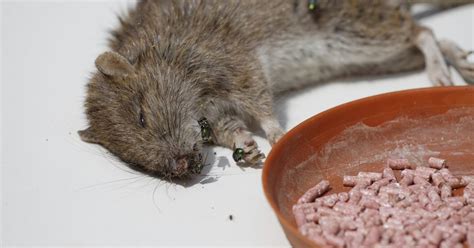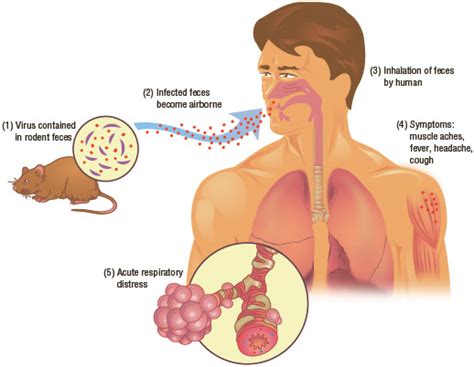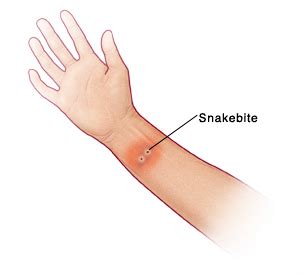
Rat Poison Ingestion
Recognizing the Symptoms of Rat Poison Ingestion
Rat poison ingestion can be a serious concern for both humans and pets. It is important to recognize the symptoms of rat poison ingestion in order to take immediate actions and seek appropriate treatment. In this blog post, we will discuss the various symptoms that may arise when someone ingests rat poison, as well as the necessary steps to take when faced with such a situation.
1. Swallowing rat poison: The most common way people or pets are exposed to rat poison is through accidental ingestion. Symptoms can vary depending on the type and amount of poison consumed. Some common signs include vomiting, diarrhea, abdominal pain, and bleeding from the gums or nose. In severe cases, neurological symptoms such as tremors or seizures may occur.
2. Inhalation of poison: Rat poison can also be inhaled, especially when granules or powders are used. This can happen when someone comes into contact with contaminated bedding, dust, or air particles. Symptoms of inhalation may include difficulty breathing, coughing, chest pain, and wheezing. Immediate medical attention is necessary if these symptoms occur.
3. Absorption through skin or eyes: While less common, rat poison can also be absorbed through skin contact or contact with the eyes. Symptoms in these cases may include redness, irritation, pain, and swelling at the site of contact. It is important to wash the affected area thoroughly with soap and water, and seek medical advice accordingly.
Recognizing these symptoms is crucial in order to take immediate actions and seek appropriate treatment. If you suspect rat poison ingestion in yourself, a loved one, or a pet, it is essential to contact a healthcare professional or veterinarian immediately. They will be able to evaluate the situation, provide necessary guidance, and administer appropriate treatment based on the type of poison ingested.
List of Immediate Actions:
- Contact emergency medical services or a veterinarian as soon as possible.
- Provide all relevant information about the type of rat poison ingested, if known.
- Follow any advice given by healthcare professionals, such as inducing vomiting or administering activated charcoal.
- Ensure the affected individual or pet is kept calm and comfortable while awaiting medical assistance.
Table: Different Types of Rat Poisons:
| Type of Rat Poison | Active Ingredient | Effects |
|---|---|---|
| Anticoagulant Rat Poisons | Warfarin, bromadiolone, or brodifacoum | Causes internal bleeding and prevents blood clotting. |
| Cholecalciferol (Vitamin D) Rat Poisons | Cholecalciferol | Leads to excessive calcium levels, damaging organs such as the kidneys and heart. |
| Bromethalin Rat Poisons | Bromethalin | Causes brain swelling, leading to neurological symptoms and potentially death. |
Preventing rat poison ingestion is always the best course of action. Keep rat poison products out of reach of children and pets, and follow the manufacturer’s instructions carefully when using them. Additionally, make sure to seal any openings or crevices in your home that may serve as entry points for rats. By taking proactive measures and being aware of the symptoms of rat poison ingestion, you can help ensure the safety and well-being of yourself, your loved ones, and your pets.
Immediate Actions to Take When Rat Poison is Ingested
Rat poison ingestion can happen accidentally if you have it in your home for pest control or if you come into contact with it in outdoor areas. Regardless of the situation, it is crucial to take immediate actions when you suspect someone, including yourself, has ingested rat poison. Prompt action can potentially save lives and minimize the harmful effects of the poison. In this blog post, we will discuss the necessary steps to take when rat poison is ingested to ensure the person’s safety and well-being.
1. Stay Calm and Seek Medical Help:
The first and most important action to take is to stay calm and call for medical assistance. Even if the person seems fine initially, it is necessary to seek professional medical advice. Contact the nearest poison control center or emergency services immediately. They will guide you on the appropriate measures to take based on the type of rat poison ingested and the individual’s condition.
2. Provide Relevant Information:
While waiting for medical help to arrive, provide them with any crucial information regarding the rat poison or its packaging. If possible, take a clear photo of the product label or any remaining residue for quick identification. This information will assist medical professionals in determining the potential toxicity and choosing the most suitable treatment.
3. Do Not Induce Vomiting:
In cases of rat poison ingestion, it is essential not to induce vomiting unless specifically advised by medical professionals. Some rat poisons contain harmful chemicals that can cause further damage to the esophagus and respiratory system if vomited. Always follow the instructions given by the poison control center or emergency services for the best course of action.
4. Monitor Vital Signs:
While waiting for medical help, keep an eye on the person’s vital signs, including their pulse, breathing rate, and consciousness level. If any sudden changes occur, such as difficulty breathing, seizures, or loss of consciousness, inform the medical professionals right away. These signs could indicate a severe reaction to the rat poison and prompt intervention might be necessary.
5. Avoid Home Remedies:
It is crucial to resist the temptation of using home remedies or administering other substances without professional guidance. Some household remedies may worsen the situation or interact negatively with the rat poison, causing further harm. Trusting the expertise of medical professionals is vital in such situations to ensure the person receives the appropriate treatment.
Remember, rat poison ingestion can have serious consequences, and immediate actions are necessary to minimize harm. Stay calm, seek medical help, and provide essential information to assist in the treatment process. By following these steps, you can help ensure the safety and well-being of those who have ingested rat poison.
Different Types of Rat Poisons and Their Effects
Rat poisons are commonly used to control the rat population and prevent damage to homes and properties. However, it is important to understand the different types of rat poisons and their effects to ensure the safety of both humans and pets. There are various types of rat poisons available in the market, each with its own unique formulation and mode of action.
1. Anticoagulant Rodenticides:
One of the most widely used types of rat poisons is anticoagulant rodenticides. These poisons work by preventing blood clotting in rats, leading to internal bleeding and eventual death. Some commonly used anticoagulant rodenticides include warfarin, brodifacoum, and diphacinone. It is crucial to handle these poisons with utmost care, as they can be harmful if ingested by pets or humans.
2. Bromethalin:
Bromethalin is a highly toxic rat poison that affects the central nervous system of rats. Unlike anticoagulant rodenticides, bromethalin does not require multiple feedings to be effective. It acts quickly, causing swelling in the brain and spinal cord, leading to paralysis and ultimately death. However, it is essential to use caution when using bromethalin as it poses a significant risk to non-target animals and even children if ingested accidentally.
3. Cholecalciferol:
Cholecalciferol, also known as vitamin D3, is another type of rat poison that is highly toxic to rodents and other animals. It works by raising the levels of calcium and phosphorus in the body, leading to organ failure and death. The effects of cholecalciferol poisoning can be delayed and may not show immediate symptoms. Therefore, it is crucial to seek prompt medical attention if ingestion is suspected.
4. Zinc Phosphide:
Zinc phosphide is a commonly used acute toxicant for rodent control. When ingested, it reacts with the acid in the rat’s stomach, producing a highly toxic gas called phosphine. This gas quickly builds up, leading to cell damage and organ failure. Zinc phosphide is highly dangerous and should only be used by trained professionals for rat control purposes.
List of Different Types of Rat Poisons:
- Anticoagulant Rodenticides
- Bromethalin
- Cholecalciferol
- Zinc Phosphide
Table: Effects of Different Rat Poisons
| Rat Poison | Mode of Action | Effects |
|---|---|---|
| Anticoagulant Rodenticides | Prevent blood clotting | Internal bleeding |
| Bromethalin | Affects central nervous system | Brain swelling, paralysis |
| Cholecalciferol | Elevated calcium and phosphorus levels | Organ failure |
| Zinc Phosphide | Produces toxic gas (phosphine) | Cell damage, organ failure |
It is essential to use rat poisons responsibly and with caution. Always follow the instructions provided by the manufacturer and take necessary precautions to prevent accidental ingestion by pets, wildlife, and children. If you suspect rat poison ingestion in humans or animals, seek immediate medical attention. Remember, prevention is key to reducing the need for rat poisons. Implement effective rodent control measures, such as sealing entry points, proper food storage, and regular sanitation, to prevent rat infestations and keep your home safe.
Treatment Options for Rat Poison Ingestion
Rat poison ingestion can be a serious and potentially life-threatening situation. It is important to recognize the symptoms of rat poison ingestion and take immediate actions to ensure the safety of the affected individual. In this blog post, we will discuss the treatment options available for rat poison ingestion and how to prevent such incidents from happening in the future.
Recognizing the symptoms of rat poison ingestion:
When a person ingests rat poison, they may exhibit various symptoms depending on the type and quantity of poison consumed. Some common symptoms include:
- Bleeding from the nose, gums, or other parts of the body
- Blood in urine or stool
- Difficulty breathing
- Weakness and lethargy
- Nausea and vomiting
- Abdominal pain
Immediate actions to take when rat poison is ingested:
If you suspect someone has ingested rat poison, it is crucial to act quickly. Here are some immediate actions you can take:
- Call emergency services: Dial your local emergency number to seek immediate medical assistance. The operator will provide guidance on what to do next.
- Do not induce vomiting: In the case of rat poison ingestion, inducing vomiting is not recommended. Some poisons can cause further harm if brought back up.
- Collect information: Try to gather information about the type of rat poison ingested, if possible. This can assist medical professionals in determining the appropriate treatment.
Treatment options for rat poison ingestion:
The treatment for rat poison ingestion will depend on various factors, including the type of poison, amount ingested, and the individual’s overall health. Some common treatment options include:
| Treatment Option | Description |
|---|---|
| Activated charcoal | This substance can help absorb the poison in the stomach and prevent its absorption into the bloodstream. |
| Vitamin K | If the rat poison interferes with blood clotting, vitamin K may be administered to restore normal clotting function. |
| Antidote medications | In some cases, specific antidote medications may be given to counteract the effects of the poison. |
| Blood transfusion | If severe bleeding occurs, a blood transfusion may be necessary to restore blood volume and clotting factors. |
It is important to note that these treatment options should only be administered by medical professionals. Do not attempt to treat rat poison ingestion at home without professional guidance.
Preventing rat poison ingestion and ensuring safety:
Prevention is always better than cure when it comes to rat poison ingestion. Here are some preventive measures to reduce the risk:
- Store rat poison in secure cabinets or areas inaccessible to children, pets, and wildlife.
- Use alternative methods for rodent control, such as traps or natural deterrents.
- Read and follow the instructions provided with rat poisons carefully.
- Dispose of rat poison containers properly, ensuring they are out of reach and cannot be mistaken for food or drinks.
By being vigilant and taking these preventive measures, you can help protect your loved ones and pets from the dangers of rat poison ingestion.
Preventing Rat Poison Ingestion and Ensuring Safety
Rat poison can be extremely dangerous if ingested by humans or pets. It is important to take proactive measures to prevent rat poison ingestion and ensure the safety of everyone in your household. By following a few simple guidelines, you can minimize the risk of accidental ingestion and protect your loved ones.
First and foremost, it is crucial to store rat poison securely. Keep it in a locked cabinet or on a high shelf where children and pets cannot access it. Remember that rats and mice can squeeze through small openings, so make sure the container is tightly sealed to prevent any accidental spills or exposure.
Secondly, label all rat poison properly. Use clear and concise labeling to indicate the contents, potential hazards, and necessary precautions. This will not only help you identify the rat poison easily but also serve as a reminder to handle it with care.
Furthermore, educate your family and household members about the dangers of rat poison and the importance of preventing ingestion. Teach them how to identify the symptoms of rat poison ingestion and emphasize the need to seek immediate medical attention if they suspect someone has been exposed.
In addition to these preventative measures, consider using alternative pest control methods that are less toxic to humans and pets. Opt for traps or natural deterrents instead of relying solely on rat poison. This can greatly reduce the risk of accidental ingestion and ensure the overall safety of your home.
In conclusion, preventing rat poison ingestion and ensuring safety is of utmost importance. By storing rat poison securely, labeling it properly, educating your family members, and exploring alternative pest control methods, you can minimize the risk and protect your loved ones. Taking these preventative steps will go a long way towards creating a safe and hazard-free environment in your home.
Frequently Asked Questions
Q: What are the symptoms of rat poison ingestion?
A: Common symptoms of rat poison ingestion include bleeding, bruising, nosebleeds, blood in the urine or stool, weakness, lethargy, difficulty breathing, and vomiting.
Q: What actions should I take immediately if rat poison is ingested?
A: If rat poison is ingested, it is important to seek immediate medical attention for the affected person or pet. Additionally, try to identify the type of rat poison ingested and provide this information to the healthcare provider.
Q: What are the different types of rat poisons and their effects?
A: There are several types of rat poisons, including anticoagulant rodenticides, bromethalin-based poisons, and cholecalciferol-based poisons. Anticoagulant rodenticides interfere with blood clotting, bromethalin-based poisons affect the nervous system, and cholecalciferol-based poisons can cause kidney damage.
Q: What are the treatment options for rat poison ingestion?
A: The treatment for rat poison ingestion depends on the type of poison. It may involve inducing vomiting, administering activated charcoal, providing supportive care, or using specific antidotes for certain types of poisons.
Q: How can I prevent rat poison ingestion and ensure safety?
A: To prevent rat poison ingestion, it is important to keep all poisons, including rat poisons, out of reach of children and pets. Follow the instructions on the packaging when using rat poisons and consider using alternative methods of pest control, such as trapping or improving sanitation.
Q: How can I recognize the symptoms of rat poison ingestion?
A: Symptoms of rat poison ingestion may include bleeding or bruising, nosebleeds, blood in the urine or stool, weakness, lethargy, difficulty breathing, and vomiting. It is important to seek medical attention if these symptoms are observed.
Q: What should I do if my pet ingests rat poison?
A: If your pet ingests rat poison, contact your veterinarian immediately. Do not induce vomiting unless directed by a professional. Bring the packaging of the rat poison and any information about the specific brand or type ingested to the veterinarian.


